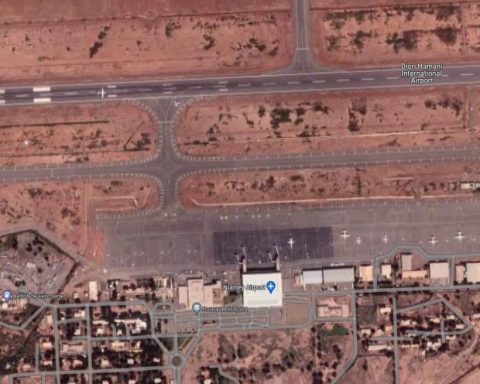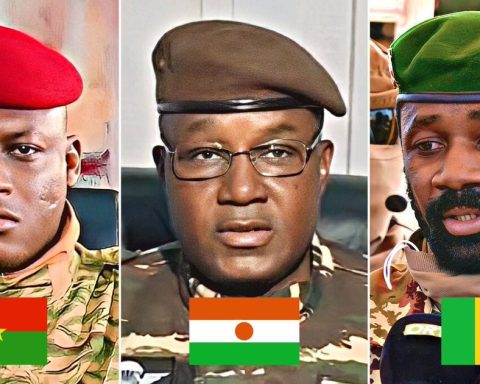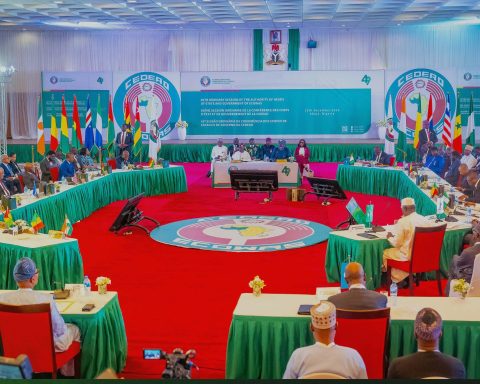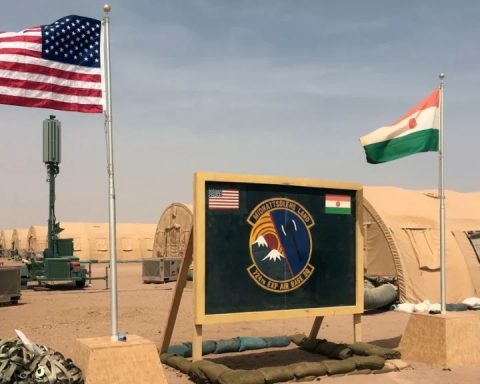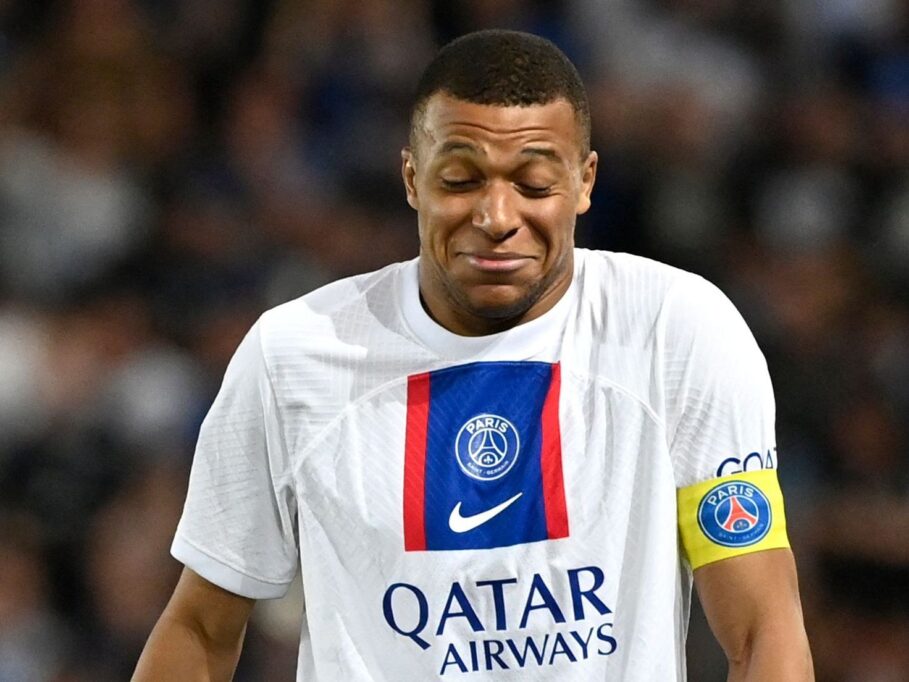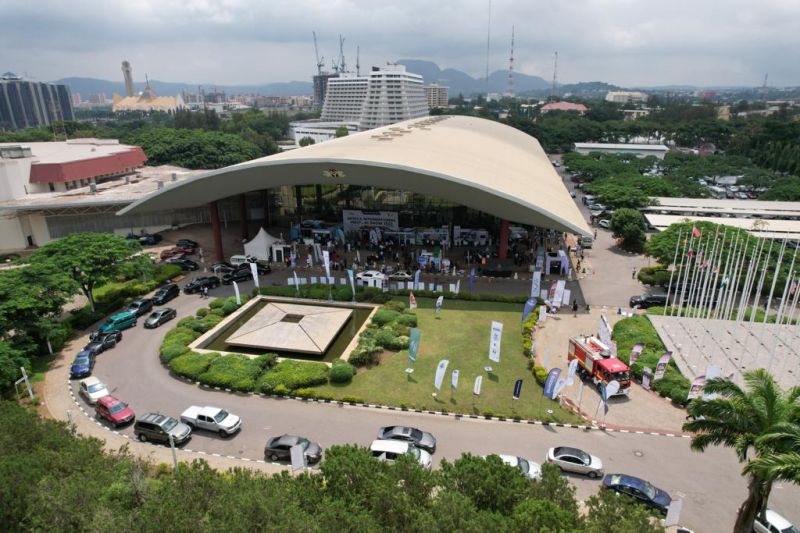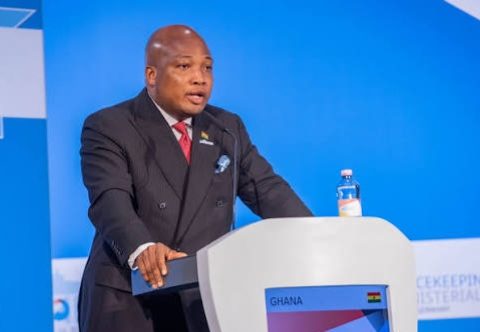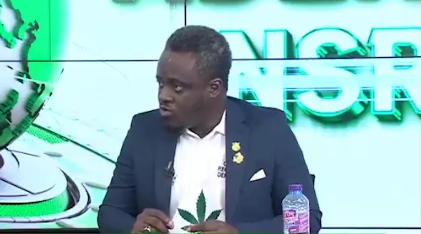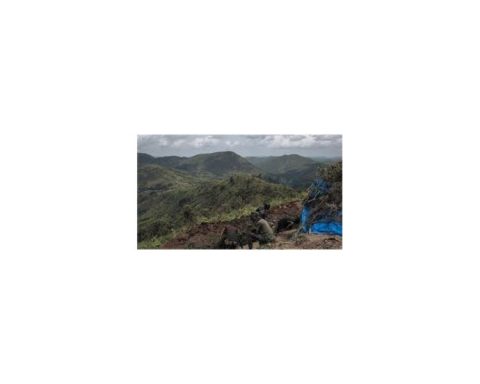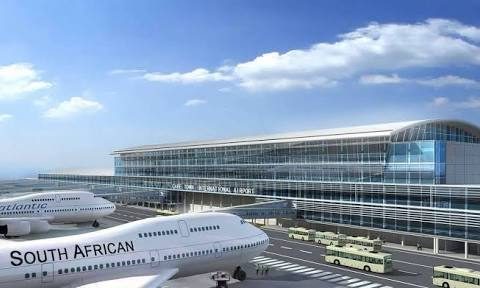The litany of coups in Africa since 2020 seems to have reignited a shouldering scramble for the continent, which has seen military and business interests from China and Russia.
While calling for restraint on the part of the gladiators in the Niger coup, Russia has shown a proclivity to the Nigerien military with the latest coup that ousted a democratically elected government there. Speaking through its spokesperson, Dmitry Peskov, Russia says the situation in Niger is a “cause for serious concern,” but calls for restraint among all parties.
Join our WhatsApp ChannelSimilarly, the Russian mercenary group, Wagner, which already operates in Mali, is said to have shown support for the coup, and offered to help the Nigerien military. Niger was a colony of France until 1960. France has 1,500 soldiers operating in the country, and together with the US, uses Niger as a base to fight an Islamist insurgency in West and Central Africa’s wider Sahel region. Though Niger is said to be a Western ally, Nigerian protesters, who also back the coup, marched on the French Embassy in the capital, Niamey, on Sunday waiving Russian flags, hauling stones and setting fire to the embassy doors and the French flag.
READ ALSO: Niger Coup: Thousands Protest Outside French Embassy In Solidarity For Military
The end of colonialism in the 1950s to the 1960s in many African countries was also the beginning of new forms of subjugation by former overlords, which coincided with the beginnings of the Cold War, an east-west tension over control of the global resources. Unfortunately, the end of World War 2 had added the United States, Russia, and China to the list of countries with deep political and economic interests in Africa’s resources. The Cold War between Western powers and the defunct USSR almost tore Africa apart for which the region declared no clear support in its non-alliance policy with other developing nations.
The demise of the Soviet Union in 1990 signaled the end of the Cold War and the start of a unipolar world led by the United States and Western Europe. It was the post-independence tussle for Africa and the post-Cold War era that heightened the checkered political history of the continent, which has vacillated heavily between military rule and democracy. Since recently in 1994 when it gained independence from a deadly apartheid rule, South Africa remains the only African State that entered into political independence with a meaningful GDP per capita. Of the world’s total GDP of $105,569billion, Africa accounts for only $2,995 billion. Europe ($24,881 billion) and North America ($31,319 billion) together account for over $55billion. Africa has 1.3 billion people, about double the combined populations of Europe ($745 million) and North America (580 million).
It is therefore alleged that the departing colonial powers had sowed the seeds of racial and ethnic division, religious divides and ethnic profiling so as to fracture independent African states and create room for neocolonialism. This was said to sow the seeds of coups in many African States, where discontent with governance continues to grow.
There is therefore the argument that democracy was programmed to fail in Africa because many newly independent states had a background of authoritarian and draconian colonial rulers. They did not have any of the indices of good governance and strong democracy such as strong civil societies and a middle class that could operate without government patronage. As we have seen recently in Burkina Faso and Sudan, a strong civil society is necessary for democracy to thrive in Africa.
With an annual average of four coups a year between 1960 and 2000, military takeovers in Africa have staged a comeback over the past decade. In 2021, the UN Secretary-General António Guterres said that “military coups are back,” adding that “geo-political divisions are undermining international co-operation and… a sense of impunity is taking hold”. Guterres also a few days ago condemned the latest Niger coup.
Between 2021 and 2022, 11 coup attempts happened in Africa, six of them successful. A BBC report in July 2023 cited a study by two US researchers, Jonathan Powell and Clayton Thyne, who identified over 200 coup attempts in Africa since the 1950s. About half of these have been successful – that is lasting more than seven days. Overall, Africa has experienced more coups than any other continent, says the BBC, which added that “of the 17 coups recorded globally since 2017, all but one – Myanmar in 2021 – have been in Africa.”
The world’s unipolarity has however since been challenged by the rise of China and the Russian Federation. As if to announce the challenge to western dominance, President Vladimir Putin of Russia said on July 28, 2023 after a two-day Russia-Africa Summit in St Petersburg that Russia and African leaders have agreed to promote a multipolar world order and fight “neocolonialism”. “Russia’s attention to Africa is steadily growing,” he said, while also promising to cancel Africa indebtedness to Russia and a healthy dose of free grain supply to six African nations. Forty-nine representatives from African nations including 17 heads of state were in attendance where Putin said his country was seeking a “joint determination to counter neocolonialism, the practice of applying illegitimate sanctions and attempts to undermine traditional moral values”. Similarly in 2019, over 50 African leaders and another 3000 delegates were at the Russia-Africa summit in Sochi as Russia’s comments portrayed Africa as deeply aid-dependent.
Russia remains a top seller of arms to African countries, being responsible for 39% of Africa’s imported arms between 2013 and 2017. Mali, Guinea and Burkina Faso are the latest to show stronger tendency to Russia. In fact Mali, has threatened to back Niger junta in the event of any military pressure from the angry ECOWAS.
The political turmoil in these countries are linked to the tussle between France and Russia for control of these African nations. In July 2022, France ended a nine-year military mission in Mali as a result of increased hostility from the Malian government, which also pressured the European Union to end its military training mission in Mali. The same trend is set to begin in Niger, Nigeria’s neighbour.
Though denied by French authorities, there have been echoes of looming French strikes in Niger. France says it recognizes only the ousted President Mohamed Bazoum, who is believed to have called for foreign intervention to quell the military takeover.
As earlier reported by this newspaper, the high handedness of Omar Hassan al-Bashir of Sudan, before the civil protests that contributed in ousting him as sit-tight president, were said to have been bolstered by Chinese support, and also had a direct connection with the huge Chinese investments in Sudan’s oil industry. Kenya, Ethiopia, Zimbabwe, Uganda and Sudan have all been linked with Chinese influence over the last decade, and the declining civil liberties and the rising political crisis in these countries have been linked with Chinese influence. For this, pro-western type democracy scholars have warned stridently that the rising influence of China would exacerbate authoritarianism in Africa. Whether China or the West, the interest of foreign powers in Africa has brought a mixed bag of fortunes for politics, economy and security. Africa has been a continent of wars, coups, famine, instability, hunger, humanitarian crisis and insecurity, caused in large measure by foreign interests
Financial and medical aids (for instance COVID-19 vaccine donations) to developing countries signaled a terrain in the latest quest to woo African nations. Nigeria has received in excess of $4.1 billion from Chinese as of December 2021. Within a decade from 2005, Russia’s trade and investment in Africa jumped to a 185% growth while China’s foreign direct investments in African countries stood in excess of $72,185 million. Unfortunately, many aid-dependent countries in Africa are still necessarily authoritarian, with sit-tight rulers (Cameroon, Chad, Eritrea, Uganda and Rwanda). Africa’s external debt in 2019 stood at $625 billion, and much of this is down to Chinese loan largesse.
Incidentally, there is very close association between failing democracies and level of richness in resources. NATO, Turkey and Russia are playing direct military roles in the conflict that has destroyed Libya. Meanwhile, Turkey’s military mission in Somalia has been to use its military base to conduct anti-piracy missions, apparently to protect Turkish merchant ships in the Indian Ocean. Russia is pursuing its own military and political interest in Africa with military missions in Mali, Somalia and Central African Republic.
The latest events in Mali have shown that Africa is a pawn on the resource chess board of foreign powers. As of today, it is hard to offer advice to African leaders, who have been dancing naked in the war square, especially as ECOWAS and the African Union have fractured over support for the coup. What is clear is that the postcolonial war drums and games will become more feverish over the coming days and months. As ECOWAS and the leaders of Niger, Burkina Faso and Guinea exchanged a crossfire of military threats, the Western nations were making plans to evacuate their nationals from the theatre of war. Will Africa learn a bit of a lesson from being tossed about on the cesspit of interested foreign resource?
READ ALSO: 20 Years Of Maputo Protocol On Rights of Women: The Journey Has To Go On
Dr Mbamalu is a veteran journalist, Publisher and Communication Consultant.
Follow on Twitter: @marcelmbamalu
Email: marcelmbamalu2@gmail.com
- Editor
- Editor
- Editor
- Editor
- Editor



